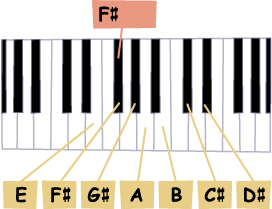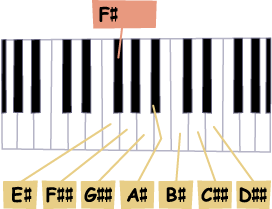2017 July-Dec
Notice of Change of Service
As of December 21 terry colon dot com will be available for increasingly more hours of daylight and increasingly fewer hours of darkness. This policy will be in effect for at least the next six months. Some readers may experience a delayed warming sensation. Consult a local meteorologist to determine if this is normal for your area. Policy does not apply to Australia, New Zealand, and parts of Africa and South America. See globe to determine if applicable in your location.
The editors apologize for the lateness of this announcement and hope it has caused no consternation or inconvenience to readers.
Filed 12/26/17
It’s Pointless Animation Monday
Why? Why not. We like trains. We like animation. We like typography. Put it all together and you get… a logomotive. Did we mention we also like wordplay? In this case a portmanteau word.
Called a blend in linguistics, a portmanteau word comes from blending two or more words, or parts of words, into a single new word of combined meaning. Examples: smog (smoke + fog), brunch (breakfast + lunch), dramedy (drama + comedy). The term was coined by Lewis Carroll in Through the Looking-Glass in reference to the nonsensical poem Jabberwocky.
’Twas brillig, and the slithy toves
Did gyre and gimble in the wabe:
All mimsy were the borogoves,
And the mome raths outgrabe.
Humpty Dumpty explains, “Well, ‘slithy’ means ‘lithe and slimy.’ ‘Lithe’ is the same as ‘active.’ You see it’s like a portmanteau—there are two meanings packed up into one word … Well then, ‘mimsy’ is ‘flimsy and miserable’ (there’s another portmanteau for you).”
Rather than a smoke-spewing steam logomotive, perhaps electric motive power is your thing. Just beware of electrocution. Another portmanteau word coined by American newspapers in 1889 to describe the then novel, as yet unused, execution by electric chair. As in electro + execution. Later, the nascent electrical industry glommed onto that word to also apply to accidental death by electric shock. Which is how we use it today. Especially since nobody uses the electric chair any more.
Anyway, it beats any portmanteau word we can imagine for lethal electric shock. Electrotermination? Electrocroak? Electrifry?
Filed 12/18/17
You Can’t Fool Mother Nature and Get Away with It

“It’s Not Nice to Fool Mother Nature.” Readers old enough might remember that line from a margarine commercial. Mother Nature tasted the margarine, declared it butter, was told it was margarine, said the line, and summoned thunder and lightning. It’s not as easy to fool Mother Nature as margarine makers or advertising copywriters might think. More likely, Mother Nature will fool you.
Take the case of Yellowstone National Park. In the 1890s, believing the elk were disappearing, Yellowstone’s caretakers took every effort to increase their numbers. By 1912, there were 30,000, and 35,000 by 1914. Bears, moose and bison were increasing, too. But there was a fly in the ointment, antelope and deer began to decline.
Park rangers started killing predators to stem the loss of ruminants. They wiped out the wolf and cougar and were targeting coyote. Then studies showed it was overgrazing from excess elk causing the declines, not predators. The growing elk herds devoured the aspen and willows which did not regenerate. The policy of killing predators had only made it worse.
The biota changed. Once plentiful aspen trees where practically all destroyed. Without the aspen, beavers couldn’t build dams, which were essential to natural hydrology. Without beaver dams meadows dried up in the summer, so more wildlife vanished. By the 1930s all the predators and beavers were gone. And so it went, measures to save the park devastated it instead. A sightseer today is visiting something of a pale imitation of the Yellowstone they tried to preserve.
Nowadays there are no end of folks who think they’re smart enough to “fix” the climate. What could possibly go wrong?
Filed 11/15/17
English as It Coulda Been

Let’s play counterfactuals, you know, historical what-ifs. What if the Greeks had lost the Battle of Marathon? What if Julius Caesar had been killed in the Gallic Wars? What if William the Conqueror had lost the Battle of Hastings? Would we much remember the Greeks? Would Gaius Julius be just an historical footnote? Would anyone talk about William the Loser?
Those are some pretty big what-ifs. Let’s narrow the focus, what if the English language never got Greeked up, Latinized, and Frenchified? What would a purely Anglo-Saxon-Briton language be like? That’s a question nobody but Englishman William Barnes seemed to want answered. Which he did in the 1800s. Here are some of his Englisher English replacements for the Greco-Latin-Franco bastard words we all use instead.
- ayesome affirmative
- folkdom democracy
- inwit conscience
- muchness quantity
- naysome negative
- overthwartings opposites
- speech-craft grammar
- suchness quality
- sundersome divisible
- thing-names nouns
- thing-sundrinesses adjectives
- thwartsome contrary
- unfrienden alienate
- word-book dictionary
- wartlore botany
- year-day anniversary
Want to know more? Read Mr. Barnes’ book at the Gutenberg Project:
An Outline of English Speech-Craft
Filed 10/27/17
Solar System Road Trip

Which is closest to Earth? Select your answer from menu:
What’s the best car take on a driving tour of the solar system? Select your answer from menu:
The correct answer to question one, Venus is closest to Earth. That’s because they’re both towns in Texas. Some joke, huh? There is no correct answer to the second question. That’s because it’s all a matter of personal choice. Or maybe it’s just not possible to take a road trip to them all since Uranus is on Kodiak Island, Alaska, and you can’t drive there directly.
Mouseover to enlarge

OK, this is all pretty silly, but if you want to take a tour of the solar system on a budget, above is where you’ll find everything. You’ll have to figure out your own route. Which shouldn’t be too hard. It ain’t rocket science.
Filed 10/11/17
Don’t Order the Chef’s Surprise or the Catch of the Day

Actual Offerings from Real Restaurant Menus from around the World
- Strange Flavor Chicken
- White or Whole-Meat Toast
- Thai-Style Uterus Salad
- Irritable Scalloped Kidney
- Cubed Demonic Steak
- Fried Kid with Pork Sauce
- Convolutions Veal
- Shrimp and Pest Quesadilla
- Chickenpox Pie
Typos, spellcheck gone awry, bad translations or what? We don’t know. Still, we’ll go for the convolutions veal, it sounds like the least unappetizing item on the menu. We have no idea how to convolute food, but it might be tasty. Who can tell?
Filed 9/25/17
A-a-a-h-h-utumn!

Fall is many folks favorite time of year. Not ours, other folks. This is one of those things people agree to disagree on. Without heated arguments. Fall people aren’t upset by spring people. Summer folk don’t find winter folk offensive. Peculiar, maybe, but not irksome. Unless they’re married to each other, maybe. But there might be something more to it in that case.
Fall people like it when the leaves turn, get their color. Well, their color other than green. Their true color, so they say. The underlying color minus the chlorophyl. Yellow, orange, red, maroon. We rather like that, too. Though we’d like it more if we lived in the woods and didn’t have to rake them up and stuff them in paper sacks.
Not like the old days when we’d rake them into a huge pile and set them ablaze. Hard to believe? In which case you’re obviously too young to remember that everyone disposed of fallen leaves that way. And the police and fire department were good with it. Back then when you said fall was in the air you meant that literally, as in the smell of burning leaves. And flying embers. Still, we never burnt down the house or the garage. Whether everyone could say as much we don’t know.
Do we miss those good old days? Not really. It was time consuming tending those fires. Worse if it was a rainy fall. Ever try to burn a pile of wet leaves? Don’t. That was then and now is now. Heck, these days folks don’t rake, they use leaf blowers or vacuum their yard. Or simply hire a lawn service and let them deal with it. And then go to the gym to burn off the excess calories they saved from those labor saving devices. Such is modern life.
Filed 9/22/17
How Many Hungarians Does It Take to Build a Bomb?

In The Right Stuff there’s a line about how the U.S. would win the race to the moon because, “Our Germans were better than their Germans.” How about building an atomic bomb? Forget Germans, you want better Hungarians.
The Manhattan Project was led by a packet of Hungarian geniuses born between 1890 and 1920. The group included project founder Leo Szilard,
What’s more, Wigner, Von Neumann, and possibly Teller all attended the same Budapest high school at about the same time, leading a friend to joke that the atomic bomb was basically a Hungarian high school science fair project. Which would put to shame our baking soda generated volcano and Alka-Seltzer powered geyser in a bottle.
Filed 9/11/17
Maybe Our Eating over the Sink Ain’t Such a Good Idea after All

Do you go by the three second rule? That is, if it falls on the floor and you pick it up within three seconds it’s OK to eat. So, what’s the time rule for something that falls in the sink? After all, there averages 830 bacteria per square inch on the floor and 18,000 per square inch in the sink. We have no information about the amount of bacteria on a cutting board. Oh yeah, flies are twice as germy (if that’s a word) as cockroaches.
All the same, you’re more likely to get grit and hair and such on your food from the floor. Which, while not dangerous bacteria, is just plain unpleasant to chew on. As are flies and cockroaches for that matter. Anyway, we suggest rather than worrying about any of that you consider the following from French author Nicholas Chamfort…
“Swallow a toad in the morning and you will encounter nothing more disgusting the rest of the day.”
Filed 9/8/17
What the Music You Listen to Says about You

Music is the true human universal. Everyone, even the most miserable nihilist who hates everything, likes music. Just not everyone likes the same kind. They say you are what you eat, one man’s meat is another man’s poison, and beauty is in the eye of the beholder. If you somehow or other blend those old saws together you get what we’re after. Different music speaks to different people differently which speaks volumes about the listener to the rest of us. Here’s what all that speaking says about you:
Country
You like hunting, fishing, dogs and beer. You do outdoor things indoors (rebuilding a transmission in the kitchen) and indoor things outdoors (sitting on the couch on the porch).
Jazz
You drink classic cocktails, wear turtlenecks, and like cats. Your’e a square who imagines they’re hip. Or hep, you’re not quite sure which term to use.
Soft Rock, Pop
You are the type of person credit cards and the term “consumer” were created for. Everything there is to know about you can be gleaned from the logos, slogans and pictures on your wardrobe items.
Hard Rock
You like black clothes, tattoos, big dogs, and ugly shoes. Some or all of which are festooned with a skull. On a scale of one to ten you go for zero or eleven.
Rap
How you like your music, clothes, jewelry, car, socializing, so on and so etc., can be summed up by the Oscar Wilde quip, “Nothing succeeds like excess.”
Folk
You’re a white, pot-smoking vegan who dresses like a 70s hippie. Except for the wool socks with sandals. You have a child named Dylan and keep a cat, parrot, goat or chicken named Woody.
Blues
You dress haphazardly and wish you were someone else, somewhere else, sometime else. That’s ‘cause you got the blues, man.
Gospel
You’re a Baptist.
Show Tunes
You like small annoying dogs and colorful scarves (for both you and the dog) and never go without product in your hair which is not its natural color. You have only girlfriends, whatever their sex.
Muzak
You are calm and easygoing if not downright pliant. Or, more likely, you have no control over the sound system.
Christmas Carols
You like wearing red clothing, are overweight, have a big beard, and live up north. You’re a jolly, generous list maker who genrally likes most people, yet oddly enough only leaves the house once a year.
“Pop Goes the Weasel”
You drive a colorfully decorated, big, white, refrigerated Step Van slowly through residential streets all summer long and are very popular with little kids.
Sea Shanties
You enjoy sailing, are adept with sidearms, drink rum, speak with a rhotic dialect, have at least one prostheses and have probably had an eye poked out. You prefer monkeys and parrots to women in the workplace, and are deathly afraid of clock-eating crocodiles.
Piper Music
You have beady eyes, whiskers, a long hairless tail and are easily led astray by colorfully outfitted musicians. Or you’re a kid who’s also easily led astray by same. You probably live in Hamlin, or did at once upon a time.
Gregorian Chants
You wear itchy brown robes, sandals, and have a funny haircut. You don’t listen to the radio or watch TV and aren’t reading this because you don’t use computers.
Classical
You are highly intelligent with excellent taste in most everything. You are good-looking and always well turned out. You are esteemed and admired by all.
You get one guess as to the kind of music we listen to.
Filed 8/30/17
The Silliest Car Ever Manufactured

We phrase it ‘manufactured’ and not ‘built’ to distinguish between prototypes, one-offs, short-run failures, and home-made contraptions on the one hand and cars that went into production in the hundreds or thousands over many years. We also ignore bizarre contrivances from the very early days of motoring before folks figured out what a car was supposed to be.
There have been other famous flops and unmitigated turkeys like the Edsel, the Brickland, and the Yugo, but these were not necessarily outstandingly bad cars. Our nominee is worse than any of these. Oddly enough this car is not universally hated, people find them an amusing curiosity despite being unroadworthy enough to chill the spine of Ralph Nader. It’s a vehicle only the British could love and drive. Mad dogs and Englishmen and all that, what?
The car in question is Mr. Bean’s nemesis, the Reliant Robin. It was ungainly, it’s steering wheel came off, the doors creaked in the wind and it was voted the worst car ever by the British public. Despite all this it was produced for thirty years. What made this car so dreadful? Simple, it had only three wheels.
Now, there have been other three-wheelers built, but their makers had the good sense to put two wheels for steering and stability in the front. Having only one wheel up front made the Robin prone to rolling over in a turn at even moderate speeds. With side-by-side seating if driven without a passenger it was unbalanced to the driver’s side making rollovers even more likely. Some folks took to keeping something heavy, like a toolbox, on the passenger side to mitigate this unfortunate happenstance.
There is a caveat here. According to British officialdom because it had fewer than four wheels the Robin wasn’t a car but a motorcycle. This despite having a completely enclosed car body, steering wheel and car-like controls, car seats and everything else car-like. By those measures it was a car, and so we deem it a car. Also unlike a motorcycle, the driver didn’t have to put his feet down to keep it toppling over when stopped. The real problem was toppling over when on the move. So, like a motorcycle after all.
Filed 8/28/17
What’s Gravy for the Goose Is Spittle for the Gander?

TV, books, media, and popular culture generally paints the picture that a job is a soul-sucking rat race where you’re under the thumb of The Man. The battle cry of freedom of the downtrodden working stiff, “Take this job and shove it.” Unless you’re a woman. In which case a job is considered the path to liberation and fulfillment. So, which is it; wage slavery or paid freedom?
“Feminism is mixed up with the muddled idea that women are free when they serve their employer, but slaves when they help their husbands.” –G.K. Chesterton
Filed 8/23/17
Ivory Tower of Babble



Have you even read some bit of jargon-filled professorial text and thought, “It looks like a sentence, it reads like a sentence, but it’s all Greek to me.” Is it because you don’t understand, or is it in fact utter gobbledegook? Or double-talk? Or an exquisite corpse?
From exquisitecorpse.com:
In the early years of the Surrealist movement, a typical evening spent among its poets and artists might include a game of “exquisite corpse.” Based on an old parlor game, Exquisite Corpse was played by several people, each of whom would write a phrase on a sheet of paper, fold the paper to conceal part of it, and pass it on to the next player for his contribution.
The technique got its name from results obtained in initial playing, “Le cadavre / exquis / boira / le vin / nouveau” (The exquisite corpse will drink the young wine). Other examples are: “The dormitory of friable little girls puts the odious box right” and “The Senegal oyster will eat the tricolor bread.” These poetic fragments were felt to reveal what Nicolas Calas characterized as the “unconscious reality in the personality of the group” resulting from a process of what Ernst called “mental contagion.”
Read that last sentence again. Does “unconscious reality in the personality of the group” say anything real, or is it itself an exquisite corpse? Anyway, just for fun we give you our mini exquisite corpse generator below. Just click on the category menus, select various words, and presto! Grammatically correct, yet incoherent sentences. You, too, can write like an academician.
Filed 8/18/17
Grandpa Fought in WWII? These Brothers Grandpa Fought in the War of 1812 and They Can Tell You about It Today

John Tyler was the tenth President of the United States taking office in 1841 upon the death of William Henry Harrison. He’s remembered as the Tyler in the campaign slogan, “Tippecanoe and Tyler, Too.” He’s not much remembered for being elected to congress. Of the Confederate States of America, that is. None of which is too terribly interesting as trivia. What’s more interesting, or perhaps surprising, are his two grandsons.
Lyon Gardiner Tyler Jr. and Harrison Ruffin Tyler, are alive today, 227 years (and counting) after their grandfather, John Tyler, was born in 1790. Both are the sons of Lyon Gardiner Tyler Sr. who was born when John Tyler was 63 years old. Harrison Tyler was born in 1928 when his father, Lyon Tyler Sr., was 75 years old.
John Tyler was 22 years old in 1812. And he was in the Army. And he fought in the War of 1812. If only he had also fought at the Battle of Tippecanoe in 1811 this trivia snippet would have been just that extra bit better.
Filed 8/14/17
Another Tiny Mystery (Or the Frivia Just Keeps Getting Frivialer All the Time)

My iTunes music list reads, “Beethoven: Symphony #3 in F flat, Op 36.” Which confused me. Here’s why. The pic above shows a bit of a musical keyboard. The keys are labeled with the notes of C major. The black keys are sharps (half step above) or flats (half step below). Now then, as you can see there is no black key between E and F. So, what and where the heck is F flat?
From Basicmusictheory.com:
The F-flat major scale has 1 double-flat, 6 flats.
Warning: The F-flat key is a theoretical major scale key.
This means:
> Its key signature would contain either double-sharps or double flats.
> It is rarely used in practice, because it is too complex to use.
Why on earth would Herr Beethoven compose in F flat major, especially since it’s the very same notes as E major? (Mouseover the bottom buttons to see.) Well, he didn’t. His third symphony is in E flat. The listing in my iTunes is a typo. But don’t blame me, it was automatically downloaded that way.
Of course, it might be worse. You could go a half step up from E and get the theoretical E sharp major key. Which would mean three sharps and four double sharps. (Mouseover button to see.) Why bother with such a scale? Compose in F, get the same results and save the bother.




As you can imagine, there’s a lot of possible scales to learn. C major is the easiest, just play the white keys. C minor substitutes two flats, E flat and B flat. Now then, with modern electronic keyboards it would be possible to assign any note to any key. In which case you could learn the two easy C scales and at the push of a button transpose to another key signature and pretty much play any pop tune going.
This is not a new idea, a transposing piano does that, only mechanically. On a transposing piano the keyboard could be cranked back and forth to realign the keys to any scale while playing in C and C minor (or whatever). In fact, Irvin Berlin used one just to make composing tunes easier
Filed 8/11/17
Fair Trade?

“Human beings are born with different capacities. If they are free, they are not equal. And if they are equal, they are not free.” –Aleksandr Solzhenitsyn
On the other hand, what if everyone were born with the same capacities, would everyone come out equal? Have you ever played Monopoly? Everyone starts out equal and plays by the same rules, yet at the end of the game one person has all the money and property while the rest have nothing. So, what does inequality show anyway?
Filed 7/31/17
Instant Fossils

It takes hundreds or thousands of years to petrify something to stone, right? Wait, not so fast. Or rather, not so slow. Eric Milton describes his examination of a petrified tree trunk in Alberta, Canada:
“The piece was pure clear silica inside, it was coated with a rougher opaque crust of partially fused sand. The tree, whose stump was petrified, was alive five years ago! After the tree was cut down to accommodate the right of way for a new power transmission line, an accidental break allowed the live high-voltage wire to contact several tree stumps still in the ground. The power was cut off within hours of the break. All of the tree roots which contacted the broken wire were fossilized.”
Perhaps now we know what really happened to Lot’s wife. She didn’t turn to salt, it was basalt. Kerzap!
Peter Mungo Jupp: Electric Fossilization
Filed 7/26/17
Foody Frivia

Do you like cold pizza? Some do, some don’t. For us, pizza fresh out of the oven, yummy; Pizza fresh out of the fridge, yuck. Is it just the temperature, the texture, the look? Not really.
Despite being the same ingredients in the same arrangement hot pizza and cold pizza tastes different. But it’s not the pizza, it’s us. Taste receptors work differently at different temperatures. That’s why many things need to be spiced up a bit when eaten cold. Like leftover fried chicken. Just needs a little more salt and pepper, right? Or is that just us?
Know what else makes a difference? Packaging. The French gave experts the exact same wine poured from a high-price brand bottle and a low-price brand bottle and the experts declared the high-price brand wine was better. So then, you can feel better for buying that store brand box-o-wine. Just decant it into a fancy bottle and, “Voila, tres magnifique.”
One more trick. Want diners to laud your culinary offerings? Give it a fancy description. Folks will compliment the chef’s herb-crusted calamari, but will rate lowly the fried squid. Same dish, different name. Guess Shakespeare got it wrong. A rose by any other name… stinks.
Filed 7/19/17
A-a-a-a-h-h-h, July

It’s fairly widely known July and August were renamed after Julius Caesar and Augustus Caesar respectively. Quick quiz: what were the names of the months they replaced?
July was originally Quintilis, August was originally Sextilis. These fell into the whole month name by number business: September, seventh month; October, eighth month; et cetera. If you know your Latin number prefixes you can tell that Quintilis meant fifth month and Sextilis meant sixth month. (If we knew Latin we might explain why it was Quintilis and not Quintember, but as we don’t know Latin we’ll just have to let it slide.)
But wait, isn’t July the seventh month? Well, yeah. Thing was, the original Roman calendar had only ten months and lasted 304 days with unaccounted for days in the winter. We don’t know how that was supposed to work. Neither did the Romans really because it didn’t. Which is why they added January and February in about 700 BC. They tacked these new months on the beginning of the year and so the numerical month names didn’t make sense any more.
Even then the Roman calendar didn’t add up and the seasons got out of whack. So much so they sometimes added a thirteenth month, Intercalaris, to try to rejigger the seasons back in line. Then the two Caesars got involved and reformed the thing to the calendar we enjoy today. If you don’t enjoy it, that’s on you.
Filed 7/1/17




